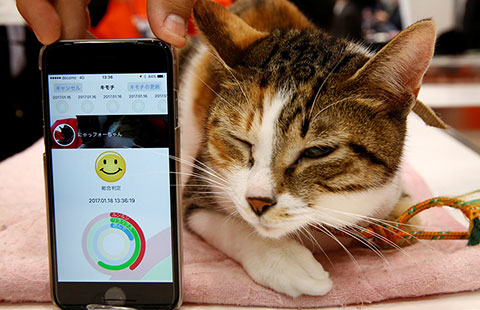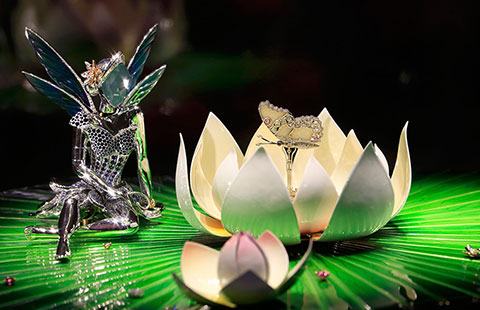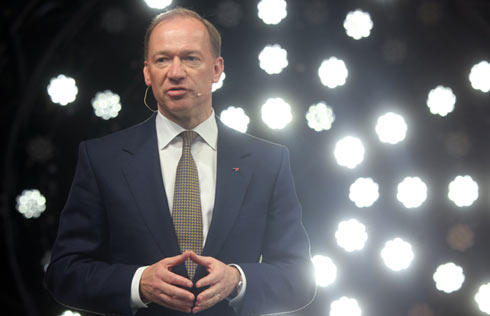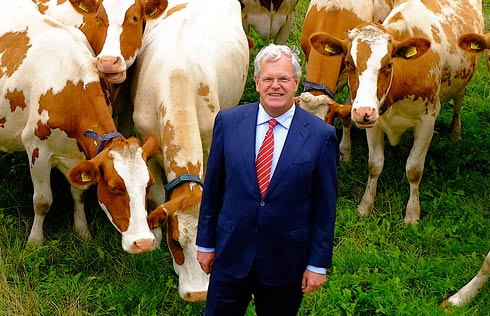Audi's dealership woes hindering growth
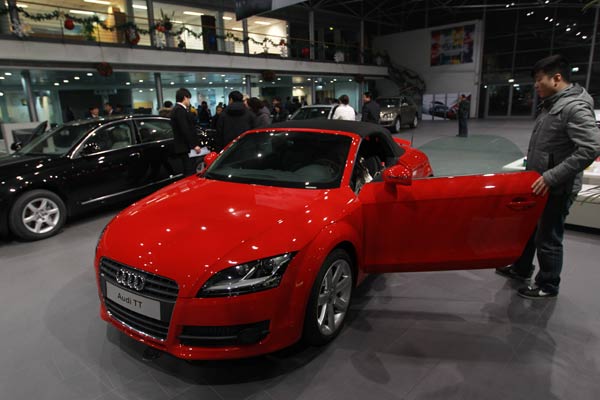 |
|
German premium carmaker Audi reports sales growth of 3.7 percent in 2016 after zero growth in 2015. [Photo by Cu Meng/For China Daily] |
Audi retained its top position in China's premium car segment last year, but the good days might be over soon as its arch rivals are catch up fast and tough negotiations with its rebellious dealers are pending.
The German brand sold 589,000 cars to Chinese people in 2016, about 70,000 cars more than BMW and 110,000 cars more than Mercedes-Benz, but its pace of growth is much slower.
Audi saw its 2016 sales edge 3.7 percent year-on-year, after zero growth in the year before, while all other players in the segment were marching at double or even triple-digit speed.
BMW and Mercedes-Benz, its nearest rivals, grew at a rate two times faster and six times faster than Audi, respectively, and have shown signs of potentially rapid growth in the coming years with their rich product plans.
BMW has made public its plan to launch 14 new models in China.
Even more menacing a problem is from within Audi itself.
The giant hit the headlines in late 2016 when a picture went viral online of its signing a memorandum with SAIC Motor to build a new joint venture and a separate sales network in China.
The move angered existing dealers in the country and triggered weeks of infighting last year as they worried about shrinking sales and profit loss due to increased competition from a separate sales network.
Although the dealers were temporarily calmed after Audi told FAW-Volkswagen, which has been localizing Audi models, to negotiate with them, Audi insisted that the sales talk with SAIC Motor will resume before the end of March.
Time is running out and a person close to the matter said dealers are now selecting representatives for the forthcoming talk, during which they may demand compensation, claiming that the automaker has set unrealistic sales targets and misled them into building more outlets.
Audi now has a sales network of 457 authorized dealers in more than 190 Chinese cities, already the largest of all premium carmakers in the country, with dozens more planned.
Xiao Zhengsan, secretary-general of the China Automobile Dealers Association, said: "Audi dealers have been experiencing hard times over the past two to three years and that building a new sales network will make their struggle even harder."
Despite the compromise between Audi and its existing dealers, Chen Hong, chairman of SAIC Motor, told shareholders that "it is no big deal, there will be little change to SAIC-Audi cooperation".
Audi China confirmed to China Daily that the talks on production are not interrupted.
The China unit of Volkswagen Group, Audi's parent company, believes the move would involve no risks but bring many opportunities, saying the new joint venture will become a new source of revenue for Audi.
A Beijing-based analyst who demanded anonymity said if Audi's ultimate goal is to improve sales and profit in China, building a new joint venture will not open a new source of wealth, but rather a Pandora's box.
He said FAW-Volkswagen will have a capacity of 1 million Audi cars by 2020, which is already a little too much considering its current sales, so building cars with SAIC means Audi has to invest a lot of money for unnecessary capacity.
"Undoubtedly, the investment would finally translate into price tags of models and make them less competitive," said the analyst.
"More importantly, building a new joint venture and a separate network will not make Audi cars more competitive, but it means Audi will have to tread carefully to balance relations with the two partners."
Volkswagen AG has made a similar mistake before. In late 2013, it authorized SAIC Volkswagen to sell imported Volkswagen cars in the hopes of boosting their sales in China.
Unfortunately, the plan soon backfired. Although the number of dealers doubled, the sales in 2014 were 1,000 units less than the year before due to their disruptive competition.
A China Economic Net report said that, in order to boost sales, SAIC Volkswagen promised that if its dealers would sell one imported Touareg, they would be allowed to take in five more popular and profitable Tiguan models.
The promise prompted dealers to undersell Touaregs and disrupted Volkswagen's pricing system, forcing the original dealers of imported models to lose money. At the dealers' behest, Volkswagen stopped the move in early 2015.
And a similar move has handed Mazda another bitter byproduct.
The Japanese automaker had intended to increase its presence in the world's largest market by collaborating with two automakers but it found that both-FAW Mazda and Changan Mazda-are more inclined to focus on sales than brand building.
If Audi suffers a similar outcome, it could find that the result is even deadlier to its premium brand than it was to Mazda's volume brand.
As Chinese media report, the first Audi-SAIC model may make its debut at the Shanghai auto show in April this year. It will undoubtedly be a big day for the two sides, but chances are that the move will hand its rivals an advertant, but much appreciated, boost.









